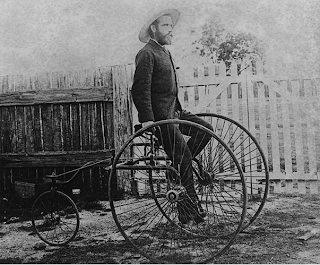 |
| Are you trying almost anything to get an extra sale? |
Effort is rewarded isn’t it?
To a degree yes, but when things aren’t going great working harder may
not make any difference. You could be putting extra hours in for nothing.
The key concept to keep in mind is that you can’t control
everything. Let’s go through a few.
Location – you can choose where to locate, but vacancies and
price determine whether or not you can take it.
Brand name – you can choose the brand and the image. However,
what builds a brand is a large and growing customer base, not what you pay a
graphic designer or an advertising agency.
Web presence – you can design a website with almost infinite
variations, however, you need to understand what it is that drives your
customers to the site and converts them to a sale. It is not your website – it is
their website.
Costs – you can cut costs, hire and sack staff, change the
quality of your product inputs, or even the quantity of your product. However,
you need to keep your customers happy. If you take cost cutting too far then
quality of service and quality of product will drop to a level that your
customers will abandon you – overnight.
Revenue – generally the market sets the price. You may be able to play on the margins, but
generally speaking you are locked into a range. If you try selling an average
product for a premium price then your lack of customers will let you know. If
you believe that you can use packaging and gimmicks to sell bad product at a
premium price – after all there are some companies that do exactly this very
successfully – but for most companies it utterly fails.
General economic conditions – you have absolutely no control
over the broader economy – so stop losing sleep over it. There may be rough
periods, mostly you can just ride them out. You need to keep some working
capital or savings to help you out over those periods. However, there is always
need for a good product, so make sure you are getting the fundamentals right.
Have a good product and good service with great customer experience and you can
survive.
Competitors – you can’t stop competitors setting up and
taking some of your business. However, what you can do is recognise that
customers will likely buy from all of you to varying degrees, with the best
known and largest brands getting the lion’s share. Embrace the competition as
it means there is a great market – go grab some of it.
It’s important to keep your sanity by limiting your
activities to those things that actually make a difference. If you find yourself
working harder than ever just to stay profitable then step back and take a look
at your business – the problem may not be what you think it is.





















